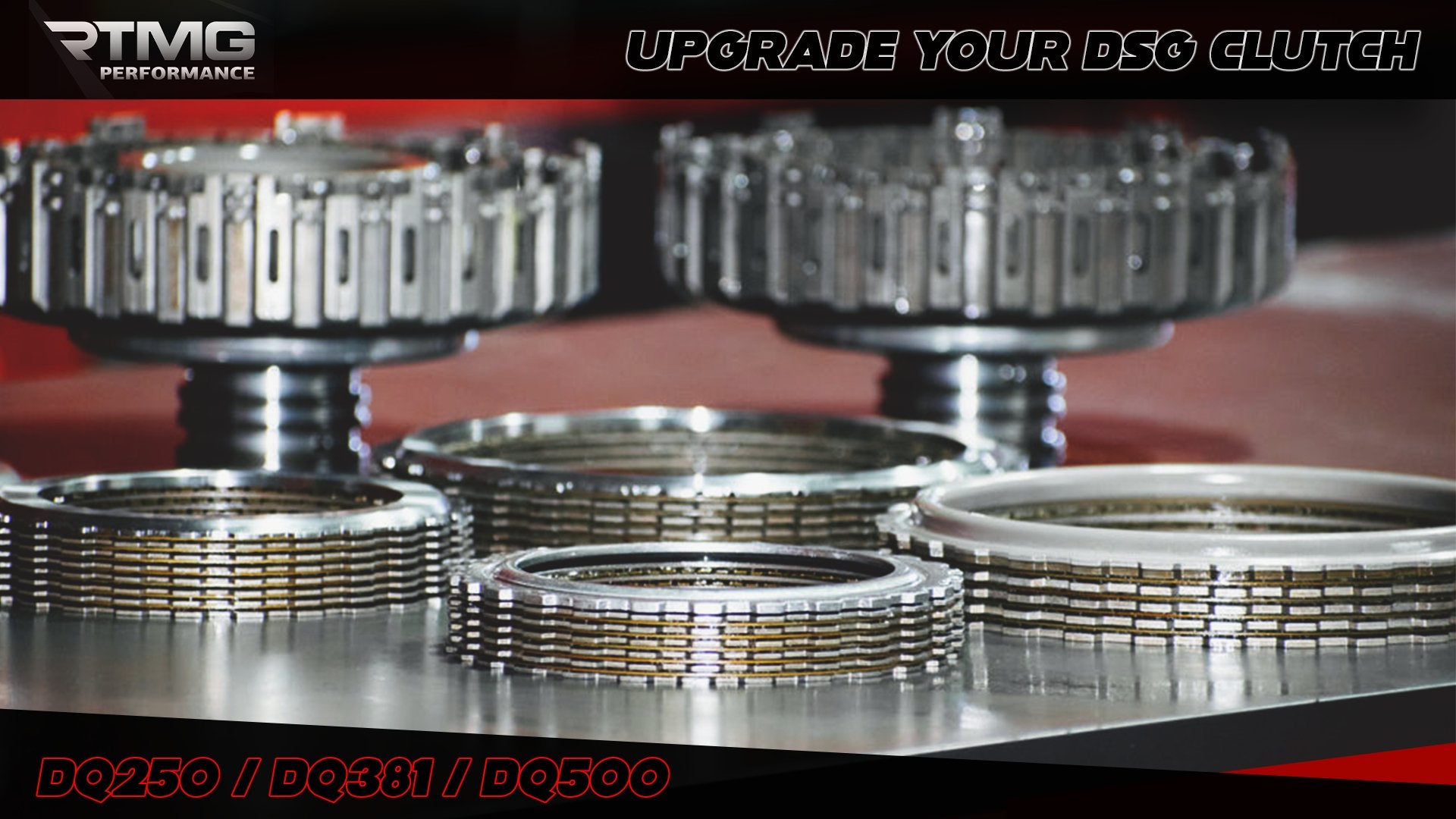
Upgrade your DSG Clutch Service - DSG DQ250
SKU: 901-0737
- Regular price
- €1.068,20 EUR
- Sale price
- €1.068,20 EUR
- Regular price
-
Send us your clutch, and we'll transform it to handle that extra torque like a champ. Experience lightning-fast shifts and improved performance that will leave you speechless. Where precision meets power.
*Benefits & Advantages
*High torque holding capacity
*Fast and consistent engagement
*Exceptional heat resistance
*Reinforced RTMG Performance construction
*Improved pedal feel
*Extended service life
*Made by the fastest team 4cyl 7sec team with DQ250
Presentation of Wet Multi-Disc Clutches
Our team at RTMG Performance, after extensive research and development under the most challenging conditions of dragster racing, managed to solve all the development issues of the 02E DQ250 gearbox clutches. Initially, we tested all friction materials, most of which had a lower friction coefficient compared to the factory clutch. Some of these materials not only had a lower friction coefficient but also produced residues, which clogged or sometimes even damaged the solenoids.
After two years of continuous testing at the Santa Pod track in England, we gathered invaluable insights in achieving one of the most challenging feats—setting the European record in the 0-400 meters (or quarter-mile) with a time of 7.8 seconds and an exit speed of 300 km/h using a 2.0L engine.
How did we develop the clutch?
The clutch struggled with the incredible launch control of our engine, which delivers close to 1,400 horsepower in a 2.0L TSI Golf 6. After approximately every 5 passes, we would remove the clutch and inspect the wear. We tested numerous friction materials until we finally selected the current material.
The most critical point, however, was in the metal plates, which deformed as the car had to cover the first 18 meters as quickly as possible from a standstill, while at the same time ensuring the clutch did not overheat to avoid slipping at high speeds and under high turbo pressures. This led to extensive testing with many materials until we found a steel that had a high friction coefficient but was also highly resistant to high temperatures, as its crystalline structure prevented it from deforming as easily as other materials, including the factory parts. The material we use is thermally treated with tempering, which relieves stress and prevents deformation under the extremely high temperatures generated during the clutch's operation during the launch.
The result was not only the time we achieved but also the track and European record for front-wheel-drive cars: 1.3006 seconds in the 0-18 meters.
A few words about power transmission.
Torque is generated by the engine and transferred through the drivetrain components: flywheel, clutch, gearbox, differential, axles, and ultimately to the wheels. What is the role of the clutch here? The clutch needs to transfer the engine's revolutions and torque to the gearbox during launch, where the engine goes from 5,000 RPM in launch control to turning the gearbox at 0 RPM. There are fixed and rotating components. In the clutch, the fixed components are the organic discs mounted with mechanisms on the clutch and connected to the gearbox, while the rotating components include the engine, flywheel, clutch basket, and the metal plates, which are integrated and floating on it.
As the driver initiates the launch by releasing the brake while flooring the throttle, the gearbox control unit compresses a piston that pushes the metal plates, squeezing the organic discs. The friction generated between these components causes the fixed discs to rotate at the same speed as the rotating ones.
To achieve this, several factors come into play, such as the friction coefficient, the surface area, the radius at which the friction materials are located relative to the axis, the cooling rate, and the heat dissipation, which is forced convection. We improved our results by:
a) Increasing the friction surface area.
b) Increasing the friction coefficient.
All of this was achieved by increasing the number of metal and organic discs and installing a bronze bushing instead of a plastic one for the stage 3 setup, to prevent it from melting at high temperatures.
Welcome to our team, welcome to the next generation of performance enhancement!






